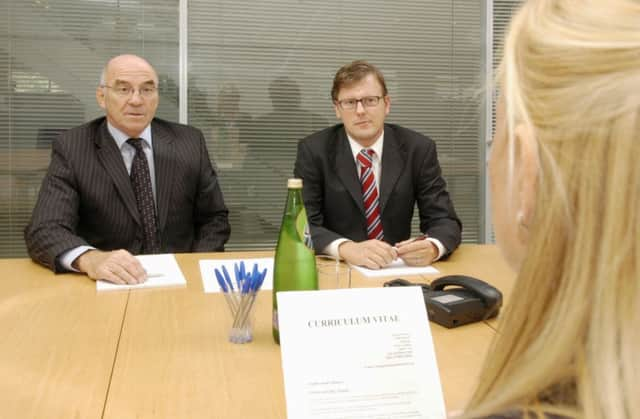Empowering he individual is the key to all our actions


The scenario is that your job is up for grabs in a re-organisation and you are going to have to apply for it.
You’ve been doing this job or similar most of your adult life, for decades. You have jumped through all the hoops to get there, working your way up and you have a fair grasp of what you’re doing. You are at the very least competent. You apply. You are trumped by another candidate half your age who is still in college. That’s bound to dent your sense of personal agency in the world.
Advertisement
Hide AdAdvertisement
Hide AdWho would be a politician? As a politician up for re-election, the interview process is not as most people experience one. For starters, you don’t have the opportunity to answer all of the questions entirely yourself. Your responses are dictated for you by that darned manifesto which you may or may not agree with in entirety. Also you only attend for part of the interview. Your fellow party candidates are answering some questions too, and some of them may have landed you in it.
Not to mention the most important proxy, your party leader.
Less an interview, more like asking someone else to sit your driving test for you, and history tells us that some party leaders don’t much value practising emergency stops or three point turns.
Another difference from normal recruitment is that, when the decision is announced, it happens up on stage, in front of a crowd, and televised. Even if the successful candidate turns down the offer because a better one has come along, everyone will know you were not first choice. It is in the nature of politics, democratic politics at any rate, that you might be a terrifically talented representative for your locality, you might have spent years crafting your debating skills, building a reputation for being effective, gaining experience and knowledge in different disciplines, honing your offer to the electorate but still end up in the wrong party at the wrong time.
Politicians sign up for this type of employment. Most of the rest of us don’t. It is difficult to imagine a more stark contrast when your desire is to achieve power than the potential outcome for failure being absence of power. How much is your psyche diminished when all of your work is for nothing? Perhaps that is why so often there is party infighting following a defeat. That power-seeking gene has to hook up to a target even if it happens to be in a smaller pool.
Politicians seek power to a purpose. The proportionate allocation of that purpose towards self-interest, the interests of similar people, and the interests of the population as a whole will vary from politician to politician. I would suggest that for we non-politicians achieving power with a small “p” over just our own life is goal enough.
The purpose of social care is, at base, empowerment. The proper role of any worker in social care is to empower. The helping role exists to support someone because that person needs skills or knowledge to compensate for those they do not have to the same degree and to complement those that they do.
The best of the social care workforce recognise that they are in a relationship with individuals they support in which the power is not balanced. The worker has much of the power. The best are also the ones who seek to give that power away. Where social care goes wrong is when a worker is unaware of their power or, much more culpably, when they are only too well aware of it and abuse it.
Do spare a thought for those politicians who woke up recently with a sinking feeling because they had been stripped of power the day before.
Advertisement
Hide AdAdvertisement
Hide AdBear in mind too those who will wake up every working day for whom the challenge is not to deal with having their power taken from them but how to give it away.
• Lesslie Young is chief executive of Epilepsy Scotland www.epilepsyscotland.org.uk